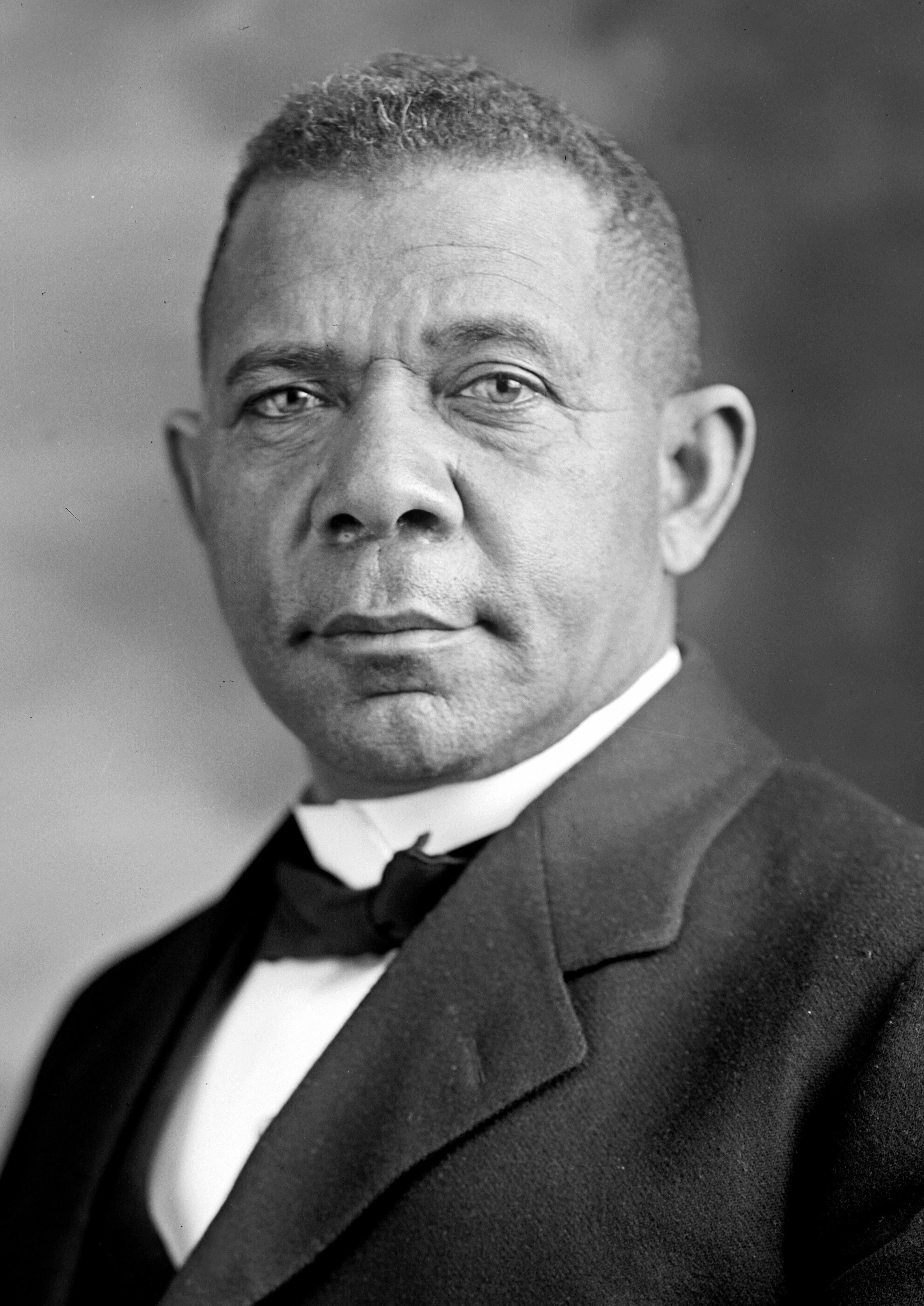
Booker T. Washington
Booker Taliaferro Washington (April 5, 1856 – November 14, 1915) was an American educator, author, and orator. Between 1890 and 1915, Washington was the primary leader in the African-American community and of the contemporary Black elite.
Booker T. Washington
November 14, 1915 (aged 59)
- Educator
- author
- African-American civil rights leader
3
Born into slavery on April 5, 1856, in Hale's Ford, Virginia, Washington was freed when U.S. troops reached the area during the Civil War. As a young man, Booker T. Washington worked his way through Hampton Normal and Agricultural Institute and attended college at Wayland Seminary. In 1881, he was named as the first leader of the new Tuskegee Institute in Alabama, an institute for black higher education. He expanded the college, enlisting students in construction of buildings. Work at the college was considered fundamental to students' larger education. He attained national prominence for his Atlanta Address of 1895, which attracted the attention of politicians and the public. Washington played a dominant role in black politics, winning wide support in the black community of the South and among more liberal whites. Washington wrote an autobiography, Up from Slavery, in 1901, which became a major text. In that year, he dined with Theodore Roosevelt at the White House, which was the first time a black person publicly met the president on equal terms. After an illness, he died in Tuskegee, Alabama on November 14, 1915.
Washington was a key proponent of African-American businesses and one of the founders of the National Negro Business League. Washington mobilized a nationwide coalition of middle-class blacks, church leaders, and white philanthropists and politicians, with the goal of building the community's economic strength and pride by focusing on self-help and education. Washington had the ear of the powerful in the America of his day, including presidents. He used the nineteenth-century American political system to manipulate the media, raise money, develop strategy, network, distribute funds, and reward a cadre of supporters. Because of his influential leadership, the timespan of his activity, from 1880 to 1915, has been called the Age of Booker T. Washington. Washington called for Black progress through education and entrepreneurship, rather than trying to challenge directly the Jim Crow segregation and the disenfranchisement of Black voters in the South. Furthermore, he supported racial uplift, but secretly also supported court challenges to segregation and to restrictions on voter registration. Black activists in the North, led by W. E. B. Du Bois, disagreed with him and opted to set up the NAACP to work for political change.
After his death in 1915, he came under heavy criticism for accommodationism to white supremacy, despite his claims that his long-term goal was to end the disenfranchisement of African Americans, the vast majority of whom still lived in the South. Decades after Washington's death in 1915, the civil rights movement of the 1950s took a more active and progressive approach, which was also based on new grassroots organizations based in the South. Washington's legacy has been controversial in the civil rights community. However, a revisionist view appeared in the late twentieth century that interpreted his actions positively.
Higher education
Washington worked in salt furnaces and coal mines in West Virginia for several years to earn money. He made his way east to Hampton Institute, a school established in Virginia to educate freedmen and their descendants, where he also worked to pay for his studies.[11] He later attended Wayland Seminary in Washington, D.C. in 1878.[11]